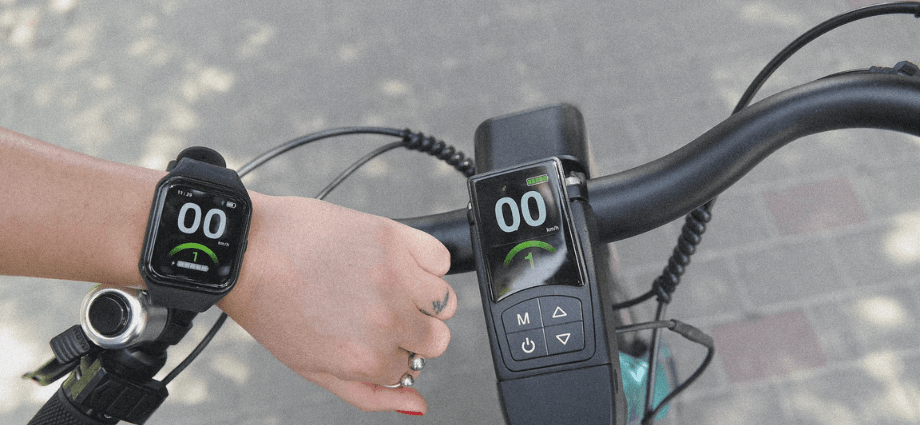Urban commuting has become increasingly challenging with heavy traffic, rising fuel costs, and environmental concerns. As cities grow and the need for efficient, sustainable transportation solutions increases, electric bicycles (e-bikes) have emerged as a popular alternative. E-bikes combine the benefits of traditional bicycles with the added power of an electric motor, making them an ideal solution for urban commuters.
Urban centers across the world are facing growing challenges related to congestion, pollution, and sustainability. Electric bicycles offer a practical way to address these issues, benefiting not only individual commuters but also the wider community. Whether you’re an experienced cyclist or a novice rider, e-bikes offer a solution that fits within your lifestyle, making commuting more accessible and enjoyable.

Key Advantages of Electric Bicycles
E-bikes are gaining popularity for a variety of reasons, but the key benefits can be categorized into eco-friendliness, cost savings, and health improvements.
Eco-friendly and Sustainable Transportation
One of the most significant benefits of electric bicycles is their positive impact on the environment. Unlike cars or motorcycles, e-bikes produce zero emissions, helping reduce air pollution and your overall carbon footprint. With cities striving to combat climate change and improve air quality, e-bikes present a sustainable transportation solution.
In addition to reducing emissions, e-bikes help decrease the demand for fossil fuels, contributing to energy conservation. Unlike cars, which are major consumers of gasoline, electric bicycles rely on rechargeable batteries, making them an energy-efficient alternative. The increased adoption of e-bikes can significantly help reduce overall pollution in urban areas.
- Zero Emissions: No harmful gases like carbon dioxide are emitted, unlike cars and motorcycles.
- Energy Efficiency: E-bikes are much more energy-efficient compared to gas-powered vehicles.
- Sustainable Materials: Many e-bikes are made with environmentally friendly materials, reducing waste and promoting sustainability.
Cost-Effective and Affordable
E-bikes can save you a significant amount of money over time. While the upfront cost may be higher than traditional bikes, the long-term savings are considerable.
Owning and maintaining an e-bike is far more affordable than relying on cars or public transportation. There are no fuel or parking fees to worry about, and maintenance costs are generally low. For example, e-bikes typically require less frequent maintenance than motor vehicles. Their smaller size and simpler mechanics also make them less costly to repair.
- Low Operational Costs: E-bikes use electricity, which is much cheaper than gas. Charging costs are minimal, and the batteries can last for several years with proper care.
- No Parking Fees: Unlike cars, e-bikes don’t require expensive parking spaces. They can be easily stored in compact spaces or bike racks.
- Minimal Maintenance: E-bikes have fewer moving parts compared to cars, which means lower maintenance costs and fewer trips to the mechanic.
Health and Fitness Benefits
Although e-bikes offer electrical assistance, they still require pedaling, which promotes physical activity. This makes them an excellent option for those looking to stay fit while commuting.
Cycling is a full-body workout that engages multiple muscle groups, improving cardiovascular health, building strength, and enhancing endurance. The added motor assistance makes it easier for individuals who may have been hesitant to cycle due to physical limitations, allowing them to enjoy the benefits of exercise without straining themselves.
- Cardiovascular Health: Regular cycling can improve heart health, enhance blood circulation, and increase stamina.
- Reduced Stress: Cycling outdoors, especially in urban environments, helps reduce stress and anxiety. It also boosts mood by releasing endorphins, helping commuters feel more energized and focused.
- Low-Impact Exercise: For those with joint issues or other physical limitations, e-bikes provide a gentler form of exercise that is easier on the knees, hips, and back compared to running.
Practical Benefits of E-Bikes for Urban Commuting
E-bikes offer several practical benefits that make them ideal for urban environments, from time efficiency to convenience and comfort.

Time-Saving Commuting
Urban traffic congestion is a major pain point for many commuters. E-bikes offer a solution by enabling riders to bypass traffic, take shortcuts through bike lanes, and avoid waiting in long queues.
The added motor assistance on e-bikes allows riders to maintain a steady pace without tiring out, making them an ideal choice for those who need to get to their destinations quickly and efficiently. They are particularly effective for short-distance trips, where e-bikes can easily navigate through traffic and avoid delays that might affect cars or public transportation.
- Bypass Traffic: E-bikes can weave through traffic and take shorter routes, saving commuters valuable time.
- Faster Commutes: With assistance from the motor, riders can maintain a steady pace even on uphill routes, reducing overall commute times.
- Reduced Wait Times: Unlike public transport, there’s no waiting for a bus or train. Riders can hop on and go immediately.
Flexibility and Convenience
E-bikes provide a high degree of flexibility that other modes of transportation simply cannot match.
Riders can take their e-bikes on trains or buses (in many cities), allowing them to travel seamlessly between different modes of transport. Additionally, e-bikes can be used for both commuting and running errands, as they can carry cargo baskets or panniers for groceries or work materials.
- Easier Parking: E-bikes can be parked almost anywhere, saving time searching for parking spaces.
- No Parking Fees: With e-bikes, you won’t have to pay expensive parking fees or deal with the hassle of finding a spot.
- Compact Design: Most e-bikes are lightweight and foldable, making them easy to store in apartments or small office spaces.
Comfort for Everyday Use
E-bikes are designed for comfort, especially during long commutes. Many models come equipped with features that make your ride smoother and more enjoyable.
Electric bikes are also well-suited for different weather conditions. Many modern e-bikes come with weather-resistant features, such as built-in fenders and weatherproof batteries, ensuring your ride remains comfortable in various weather conditions.
- Suspension Systems: E-bikes often feature suspension systems that absorb shock from uneven roads, offering a smoother ride, especially in cities with rough streets.
- Adjustable Seats and Handlebars: Riders can adjust seats and handlebars to fit their body for a more comfortable riding posture, reducing discomfort during longer commutes.
- Weather Protection: Some e-bikes come with weatherproof features like fenders to keep you dry during rainy days.
E-Bikes: A Sustainable Solution to Urban Traffic Congestion
As urban centers continue to expand, managing traffic congestion and improving air quality has become a top priority. Electric bicycles play a significant role in solving both of these issues.
Reducing Traffic Congestion
As more people opt for e-bikes, fewer cars will be on the road, leading to decreased traffic congestion. This makes the overall commute smoother for everyone, whether you’re riding an e-bike or driving a car.
E-bikes can use dedicated bike lanes that are often separate from car lanes, reducing the likelihood of accidents and making travel faster. Additionally, bike-sharing programs in many cities make it easy for commuters to access e-bikes without having to own one, further reducing the need for personal car use.
- Shared Bike Lanes: E-bikes can use designated bike lanes, which are often less congested than car lanes.
- Space-Efficient: E-bikes take up much less space than cars, reducing overall traffic volume.
Environmental Impact
E-bikes contribute to cleaner cities by reducing the number of polluting vehicles on the road. They also reduce the need for large, space-consuming parking structures.
The increasing number of e-bikes on the roads can help urban areas meet their environmental goals, reducing the carbon emissions that contribute to climate change and harmful pollutants that degrade air quality. The widespread adoption of e-bikes can have a significant, positive impact on public health and urban living.
- Lower Emissions: E-bikes produce no emissions, helping cities meet environmental goals.
- Reduced Noise Pollution: E-bikes are much quieter than cars, leading to less noise in urban areas.
- Cleaner Air: With fewer cars, urban air quality improves, benefiting the entire population.
E-Bikes and Smart City Initiatives
Cities are increasingly integrating electric bicycles into their public transportation systems. E-bikes can be rented through bike-sharing programs, offering a sustainable and flexible transportation option for residents.
- Bike-Sharing Programs: Cities like Paris, New York, and London offer e-bike sharing services, allowing commuters to pick up and drop off bikes at different locations.
- Last-Mile Connectivity: E-bikes serve as a solution to the “last mile” problem, helping people travel the distance between public transport stops and their final destinations.
Integration with Smartwatches for Better Commuting
E-bikes and smartwatches can work together to make your commute more efficient and enjoyable. By tracking your ride, monitoring your health, and even helping with navigation, smartwatches add an extra layer of convenience to your e-bike experience.

Apple Watch Integration
The Apple Watch can be synced with your iPhone to track your cycling activity, monitor your heart rate, and even navigate while on the go. Features like Health App provide insights into your cycling performance, ensuring you stay on top of your fitness goals.
- Heart Rate Monitoring: Track your heart rate to ensure you’re getting the right level of exercise.
- Route Tracking: The built-in GPS on the Apple Watch can help you find the best routes for your daily commute.
Samsung Galaxy Watch
The Samsung Galaxy Watch offers similar functionality for Android users, including cycling tracking, fitness monitoring, and even integration with your e-bike’s app for route planning.
- Cycling Mode: Automatically tracks your cycling activity and offers insights into your performance.
- GPS Navigation: Provides turn-by-turn directions to help you navigate through city streets.
Fitbit and E-Bikes
Fitbit devices like the Fitbit Charge 5 can be synced with your e-bike to track your workouts, monitor your heart rate, and encourage an active lifestyle.
- Exercise Tracking: Fitbit provides detailed statistics on your cycling workout, from duration to calories burned.
- Battery Life Monitoring: Fitbit’s long battery life ensures you can keep tracking your activity throughout the day.

Conclusion
Electric bicycles offer numerous benefits for urban commuters, from environmental sustainability and cost savings to health benefits and practical commuting advantages. By reducing traffic congestion, improving air quality, and providing a convenient, eco-friendly mode of transport, e-bikes are revolutionizing the way people commute in cities. Whether you’re looking to save time, money, or improve your fitness, an electric bicycle might just be the ideal solution for your daily commute. Make the switch today and enjoy a cleaner, healthier, and more efficient way to travel.




